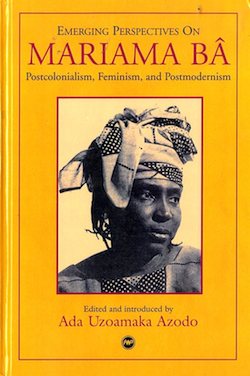Emerging Perspectives On Mariama Bâ
Postcolonialism, Feminism, and Postmodernism
Edited and introduced by
Ada Uzoamaka Azodo
Trenton, NJ : Africa World Press, 2003. 650 pages

Emerging Perspectives On Mariama Bâ
|
 |